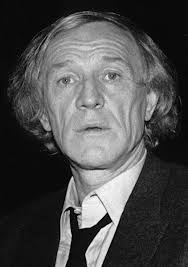
Introduction
Richard Harris, a name synonymous with passionate performances and a commanding screen presence, remains a celebrated figure in the film industry. His considerable impact on British cinema, alongside his iconic roles in both film and theatre, showcases the depth of his talent. As the world reflects on his contributions, understanding his journey is crucial for any film enthusiast.
Early Life and Career
Born on October 1, 1930, in Limerick, Ireland, Richard Harris displayed a flair for the dramatic from a young age. He initially embarked on a career in the theatre, making his mark on stage before transitioning to film. His breakthrough role came in the 1963 film This Sporting Life, where his portrayal of a troubled rugby player earned him an Academy Award nomination. This recognition set the stage for a diverse career that spanned over six decades.
Iconic Roles and Contributions
Throughout his career, Harris starred in numerous films that showcased his versatility. He is perhaps best remembered for his role as King Arthur in the 1967 musical film Camelot and as the titular character in Goodbye, Mr. Chips (1969). His ability to convey complex emotions made him a favourite among directors, and he often took on challenging roles that highlighted his range.
In his later years, Harris achieved a new generation of fame as Albus Dumbledore in the first two Harry Potter films. This role, which he portrayed until his passing in 2002, introduced him to a younger audience and solidified his legacy in popular culture. Harris’s commanding presence and distinctive voice left an indelible mark on the films, providing a sense of gravitas to the beloved franchise.
Personal Struggles and Triumphs
Despite his success, Harris’s life was marked by personal struggles, including battles with alcoholism. However, he triumphantly overcame these challenges, embracing a lifestyle change that allowed him to pursue his passions wholeheartedly. His candidness about these experiences resonated with many, making him not only a revered actor but also an inspirational figure.
Conclusion
Richard Harris passed away on October 25, 2002, but his legacy lives on through his remarkable body of work. His performances continue to influence and inspire actors and filmmakers alike. As audiences revisit his films, they are reminded of the richness he brought to the characters he portrayed. For film lovers and historians alike, understanding Richard Harris’s life and career is essential in appreciating the evolution of cinema and the enduring impact of true artistry.
You may also like

The Journey of Jon Hamm: From TV to Film Star

Catherine Tyldesley: A Look at Her Career and Impact

The Rise of Emilia Jones: A New Generation of Talent
SEARCH
LAST NEWS
- Remembering Wendy Richard: The Promise to Co-Star Natalie Cassidy
- How Did Anglian Water Achieve an ‘Essentials’ Rating for Mental Health Accessibility?
- Shai Hope Leads West Indies in T20 World Cup Clash Against South Africa
- What We Know About Weston McKennie: Future at Juventus and Past at Leeds
- What We Know About the Upcoming Live Nation Antitrust Trial